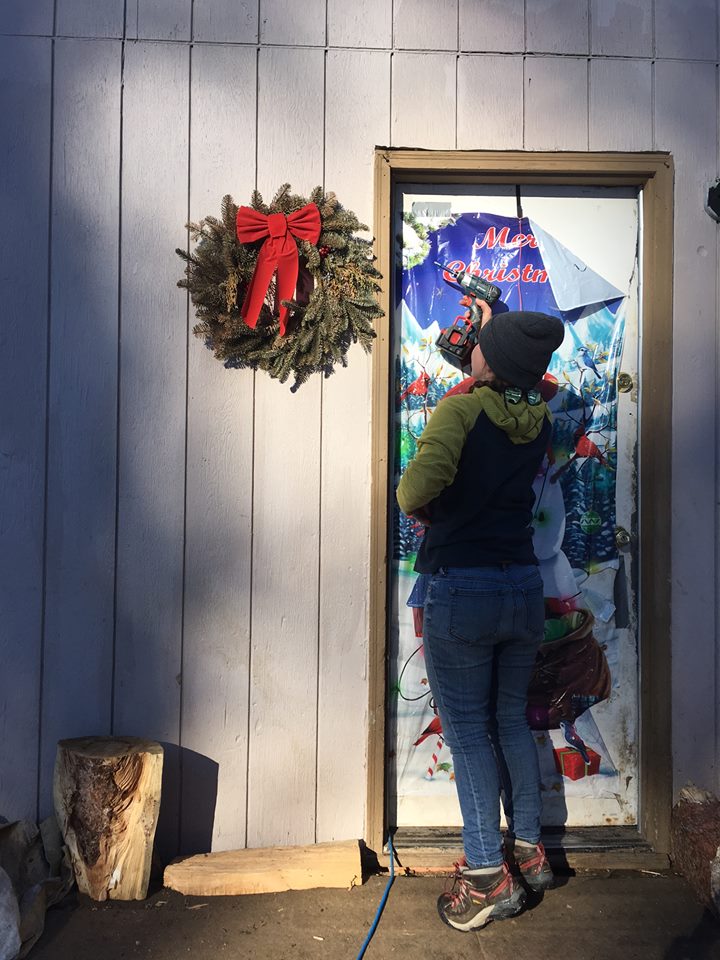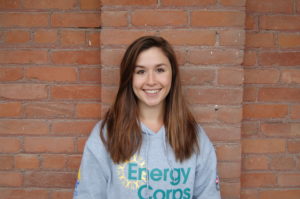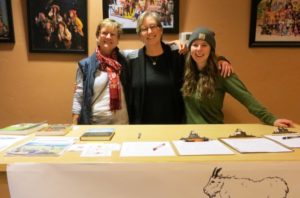By Erika Barnett:
National Day of Service for AmeriCorps members intentionally falls on Martin Luther King Day, and it is a day in which all AmeriCorps members commit themselves to enacting public service to benefit specific communities. For the Energy Corps members of Montana, this community was the Northern Cheyenne reservation.
Off we drove to Southeastern Montana- Ashland, specifically- only a short drive away from the Cheyenne communities we would be servicing in Lame Deer and Busby. Our goal was to weatherize as many homes as we could in the two days we were there, which included insulating homes with plastic window wraps, installing rubber door frame inserts, replacing faucet aerators and using LED light bulbs. While Montana is known for its alluring, vast landscapes characterized by endless rolling hillsides and big skies, the state is also known for its bitter cold winters. This is why I felt our weatherization work on the reservation was exceedingly important.
As significant as weatherization was for this community, it was surface level engagement. It’s pretty easy to install these light weatherization materials; I should mention that I’m not trying to undermine the work that we did, just that it was an easy way for us to help a community. The night we arrived in Ashland, Emily opened the discussion to a more complicated issue running rampant throughout the US- racism. Through this discussion we were challenged to think deeply about racism: if it’s present in our communities, the history of racism, and what we can do about it.
Baring this in mind, I couldn’t help but wonder what our role was in these communities, as AmeriCorps members. I thought back to our pledge that we took at the beginning of our service terms in October:
I will get things done for America – to make our people safer, smarter, and healthier.
I will bring Americans together to strengthen our communities.
Faced with apathy, I will take action.
Faced with conflict, I will seek common ground.
Faced with adversity, I will persevere.
I will carry this commitment with me this year and beyond.
I am an AmeriCorps member, and I will get things done.
Certainly our potential for helping these communities goes well beyond weatherization. Do we seek solace in raising awareness, or spreading knowledge through education? After all, the average citizen in American is often lied to about the brutal, oppressive history of Native Americans. Is it our job as AmeriCorps members to bring these fictions to light, to share our awareness of injustices with the communities we serve? These are questions that cannot be simply answered with “yes” or “no.” Engaging with communities in need is in our work description, it is our duty as AmeriCorps members. It’s not an easy undertaking to elucidate. And there is not a universal answer, as every community is different. It is our responsibility as national service members to understand the complex histories of these communities, and how it shapes their social, economic, and ultimately cultural values.
—————————————————————————————————————————————–
Erika Barnett graduated from Appalachian State University in 2015 where she earned a degree in Anthropology with a concentration in Sustainable Development. Erika has researched sustainability ideologies and anthropological theories, and extensively studied anthropogenic causes of climate change, consequences of conventional lifestyles, environmental mitigation techniques, renewable energy, as well as education and outreach as a method of mitigation through awareness. Erika will be developing Missoula County’s first greenhouse gas emissions inventory and represent the county in community-based climate action initiatives, identifying potential opportunities for county action.









